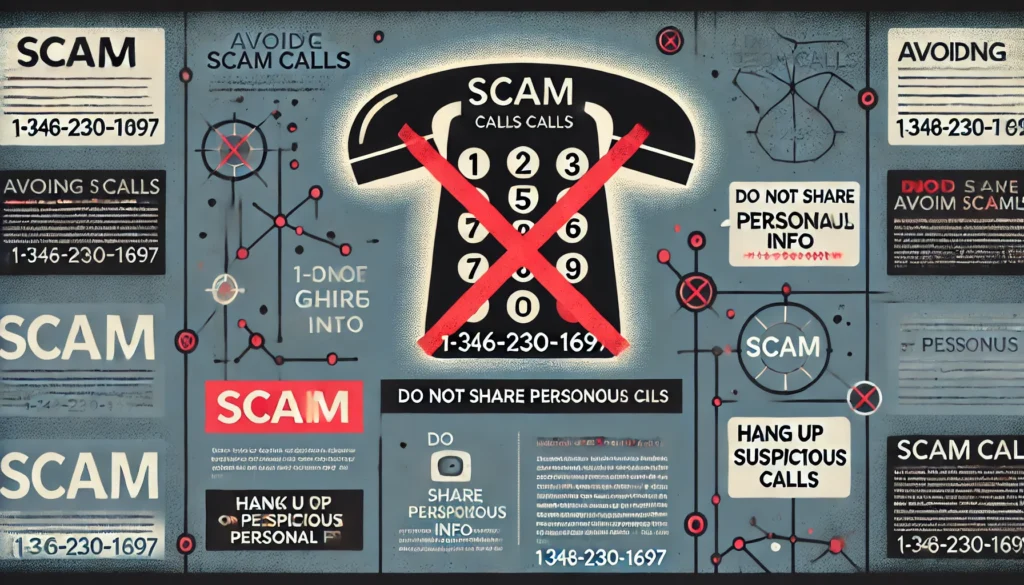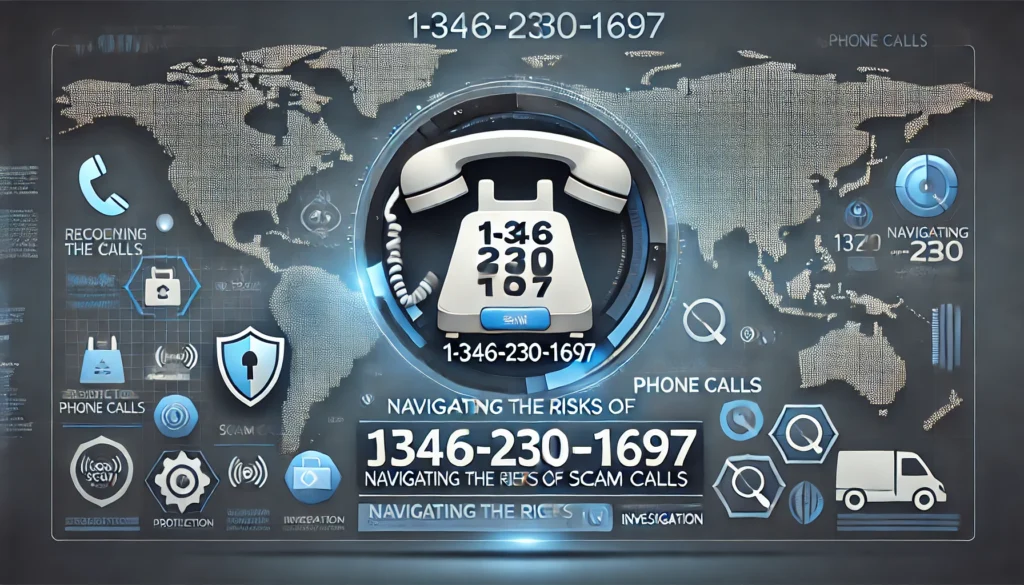Scam calls are a pervasive threat that can lead to financial losses and personal information theft. One such number that has gained notoriety for its association with scam activities is 1-346-230-1697. This guide will help you understand the nature of these calls, how to identify them, and the steps you can take to protect yourself.
Understanding the Nature of Scam Calls
Scam calls from numbers like 1-346-230-1697 are designed to deceive. Scammers use various tactics to impersonate legitimate institutions, such as banks or government agencies, to gain your trust. They often create a false sense of urgency to manipulate you into sharing sensitive information or sending money. Recognizing these calls early can prevent potential harm.
Identifying Scam Calls from 1-346-230-1697
Red Flags to Watch For: Scammers will often pressure you to act quickly. They may threaten legal action or financial loss if you don’t comply with their requests. Additionally, they may promise unrealistic rewards such as large sums of money or expensive prizes in return for a small fee. These offers are typically too good to be true and should be treated with skepticism.
Common Tactics Used by Scammers: Caller ID spoofing is a prevalent strategy where scammers disguise their number to make it appear as though it’s from a local or known contact. If you receive an unsolicited call from 1-346-230-1697, it’s important to be cautious. Always verify the identity of the caller through independent means before proceeding with any conversation.
How to Protect Yourself from Calls from 1-346-230-1697

Using Call Blocking Technology: Most smartphones and digital phone services offer features to block unwanted calls. Apps like Truecaller, Hiya, and RoboKiller can help identify and block potential scam calls. Additionally, registering your phone number with the National Do Not Call Registry can reduce the number of telemarketing calls you receive, although it may not stop scam calls entirely.
Secure Personal Information: Never share personal information such as your Social Security number, bank account details, or credit card numbers over the phone, especially if the call was unexpected. Legitimate organizations will have secure methods for handling sensitive information and typically do not ask for it unsolicited.
Legal and Psychological Implications of Scam Calls
The Legal Framework: Understanding your rights can be powerful in combating scam calls. In the United States, the Telephone Consumer Protection Act (TCPA) provides consumers with legal means to report and block unwanted calls. Reporting these calls to the Federal Trade Commission (FTC) can help authorities track and penalize fraudulent callers.
Emotional Impact: Frequent scam calls can lead to anxiety and stress. Recognizing the emotional manipulation tactics used by scammers can help you handle these calls more effectively. Remember, staying calm and collected is your best defense against the pressure tactics employed by scammers.
Enhanced Consumer Protection: The Role of Agencies and Individual Actions
Government and Agency Involvement: Beyond personal vigilance, consumer protection agencies play a crucial role in combating scam calls. These organizations monitor trends in scam activities and issue warnings about known scam numbers like 1-346-230-1697. They also provide a platform for consumers to report scam calls, which can lead to investigations and actions against scammers. Understanding how these agencies operate can offer additional peace of mind and resources for consumers feeling overwhelmed by scam calls.
Collaboration for Stronger Defense: Encouraging collaboration among telecommunication providers, technology companies, and regulatory agencies can lead to stronger defenses against scam calls. Innovations such as network-level blocking and tracing of scam calls are becoming more prevalent, providing consumers with more robust protection mechanisms that go beyond individual actions.
Technology’s Edge: Leveraging New Tools to Fight Back
Advancements in Call-Filtering Technology: As technology evolves, so do the tools available to fight scam calls. Artificial intelligence and machine learning are being harnessed to better identify and block scam calls before they reach a consumer’s phone. Discussing these advancements provides hope and demonstrates the proactive steps being taken in the technological sphere to safeguard personal information.
Securing Personal Information: With the increasing sophistication of scammers, it’s vital to secure one’s personal information with advanced security measures. Using two-factor authentication on accounts, regularly updating passwords, and securing home networks can add layers of protection that complement the steps taken to block scam calls.
Community Awareness and Education: Building a Scam-Resistant Society
Public Education Efforts: Education is one of the most effective tools against scam calls. Community workshops, online webinars, and school programs that teach people about scam awareness can significantly reduce the number of successful scams. Highlighting examples of community education efforts can inspire others to take part or initiate similar programs in their areas.
Sharing Experiences: Encouraging individuals to share their experiences with scam calls helps to demystify and remove the stigma that may be associated with falling for a scam. These stories can be powerful testimonials to the cunning tactics of scammers, as well as the effective strategies used to thwart them.
Conclusion Expansion
As scam calls continue to evolve, staying informed and equipped with the latest protection methods is more important than ever. The fight against scam callers, particularly from numbers like 1-346-230-1697, is a collective effort that includes individual actions, technological advances, and community engagement. By adopting a multi-faceted approach, we can hope to see a decrease in scam call success rates and an increase in consumer confidence and security.
FAQs about Scam Calls from 1-346-230-1697
Q1: What should I do if I receive a call from 1-346-230-1697?
A1: Do not engage with the caller. Hang up immediately and report the number to the FTC.
Q2: How can I verify if a call from 1-346-230-1697 is a scam?
A2: Check the number through a reverse phone lookup service and verify any information provided by the caller independently.
Q3: What are the signs that a call from 1-346-230-1697 might be a scam?
A3: Urgent demands for personal information, threats, and offers too good to be true are major red flags.
Q4: Can blocking 1-346-230-1697 stop all scam calls?
A4: Blocking the number can prevent further calls from that specific number but scammers often use different numbers. It’s important to stay vigilant.
Q5: Who should I contact if I suspect a scam call from 1-346-230-1697?
A5: Report the call to the FTC or your local consumer protection agency to help track and reduce scam activities.
